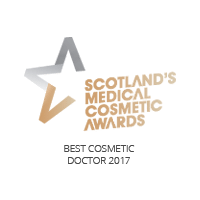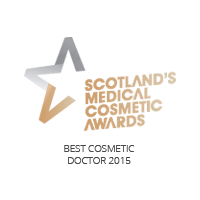The Microbiome: to test or not to test?
With all this research coming forwards promoting the importance of having a healthy microbiome, it was only a matter of time until tests would be created that could offer to assess the health of the microbiome.
But before we go down the rabbit hole of actually assessing the microbiome, it is important to be able to draw sensible meaning from the results of such tests. In order to have any sort of meaningful interpretation, one would expect to be able to correlate the evaluation of the microbiome with particular symptoms, implement an appropriate intervention to change the microbiome, re-evaluate the microbiome in conjunction with any change in symptoms and then draw appropriate conclusions as to the effectiveness of the intervention.
Unfortunately, at present, the conclusions of these microbiome tests cannot credibly tell you much about your health for the following reasons:
1. There is no single reference range for what constitutes a healthy normal microbiota.
Typically, medical tests that evaluate levels of substances which could include vitamins, minerals, electrolytes, hormones, biochemical markers and enzymes are all measured against a known “normal” and healthy reference range – but there is no such standard for the gut microbiota.
2. The clinical microbiome test data will not be specific enough to have any meaning.
When considering any particular bacterium, just knowing the group to which it belongs is not detailed enough because within each particular group there are many potential strains – all with their own distinct behaviour and all genetically unique. Some bacteria within the same umbrella group could be advocated as probiotics (healthy bacteria) whereas others can cause debilitating illnesses.
3. Claims that certain gut bacteria increase specific disease risk and that modifying the microbiota can prevent disease is not an established scientific fact.
It is recognised that certain diseases are associated with certain signature patterns of gut bacteria but what is not known is whether this is cause or effect. Does the pattern of organisms cause the disease or is the pattern a result of the disease process? Not only is there currently no way of establishing yet whether certain gut bacteria will cause any disease, especially given that other factors are associated with it such as genetics or the environment, there is also no guaranteed way of preventing the disease even if such an association could be proved.
4. There is not yet any proof way that gut microbiota can be modified in a lasting way.
It has been established that you can influence your microbiota by modifying your diet – for example switching from a fibre rich plant based diet to one that is high in animal fats and proteins can cause significant change within days – but we do not know which specific foods will change a person’s microbiota down to the species/ strain level.
If you were to completely change your diet from a typical Western diet to a healthy vegan diet, which would involve moving from a very low fibre diet to an extremely high fibre diet then there would be substantial modification in the overall microbiota composition – but generally the adult microbiota community remains stable and resistant to change, since people do not drastically alter their diets. Even after a course of antibiotics which could kill large numbers of bacteria there would be a rebound to the original baseline state over time, once the antibiotics had been stopped.
Taking probiotics can influence the microbiota, but this colonisation stops within weeks of stopping the specific supplements – thus suggesting that the health benefit occurs whilst you are taking the probiotic and increasing the relative number of these microorganisms within your gut but not because you are actually permanently altering the microbiota composition.
Even the most extreme efforts to recolonise the gut microbiota using stool (poop / faeces) transplanted from a healthy donor, which is a recognised successful treatment for very serious gut infections, cannot guarantee to modify the resulting gut microbiota permanently. Although this treatment does appear to cure the gut infection, nobody fully understands why.
5. There is not yet any scientific basis for deriving diet recommendations based on gut microbiota.
So, in practice what does this mean and what can we do, given that having a healthy microbiome may have important health implications?
There is developing evidence that assessment of the microbiome may help to understand any interpersonal variability in response to diet – whether this is in helping individuals to manage their weight or as a treatment to a condition such as IBS. This is the cornerstone belief behind personalised nutrition but one thing the scientists are in agreement over is that the evidence is not yet clear.
This lack of evidence does not prevent companies who undertake (expensive) microbiome tests from making dietary recommendations however!
The current microbiome tests may provide a lot of interesting data but there are not yet any meaningful conclusions that can be inferred from these data and we have not yet reached the stage where microbiome based diagnostics should be a routine part of clinical care. It may well satisfy your curiosity to know some of the specifics about your own personal gut microbes but it will not necessarily improve your health.
This does not however mean that we cannot strive to generally support a healthy and diverse microbiome since this has been associated with an improvement in health and well-being.
Current best practice advice suggests that a healthy microbiome is supported by:
- A plant-based diet
- Eating lots of different plants (>30/ week)
- Managing stress
- Regular amounts of physical exercise
- Not being sedentary
- Getting good quality sleep (7-9 hours)
- Minimising use of antibiotics unless there is a good clinical indication that these are essential (whilst taking a probiotic to limit the impact of the antibiotic on the gut flora)
- Moderate use of substances such as smoking and alcohol
Find out how Temple Vitality can help evaluate your current health and lifestyle.










